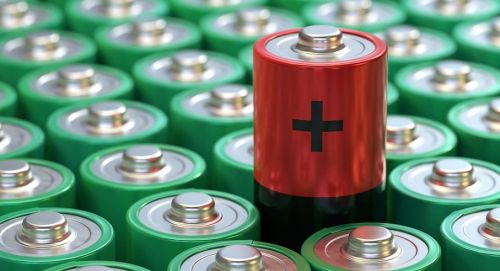
27/02/2020
Batteries of the future are investigated in the ALBA synchrotron
Batteries of the future are investigated in the ALBA synchrotron
The Nobel Prize in Chemistry 2019 was awarded jointly to John B. Goodenough, M. Stanley Whittingham and Akira Yoshino for the development of lithium-ion batteries: in words of the Nobel Committee “they have created a rechargeable world”.
The battery research community involves today thousands of researchers all around the world, including chemists, physicists, materials scientists and engineers cooperating to push this technology forward to increase performance and sustainability and also unravel new battery chemistries beyond Li-ion.
The Institute of Materials Science of Barcelona (ICMAB) located on the campus of our neighbor and partner UAB University is among the world research centers involved in that key field of research with the Inorganic Materials for Battery Applications research group led by Prof. M. Rosa Palacín.
In a webinar organized on January 23 by Secpho, a cluster of technological innovation that brings together companies, technology centers and research groups, Ashley Black from the Palacín’s group explained the use of synchrotron radiation in battery research. His talk is now online (a 23-minute video in English) and offers a good opportunity to see how powerful a synchrotron is in providing unique information about materials.
Among the different examples presented by Ashley Black, let us mention two results obtained with ALBA synchrotron on prospective batteries based on sodium or calcium instead of lithium: the study of reaction mechanisms using in situ cells in the pre-competitive technology of sodium-ion batteries (MSPD and CLAESS ALBA beam lines) or the localization of calcium by tomography reconstruction thanks to the transmission X-ray microscope of the MISTRAL ALBA beam line in the case of calcium-ion batteries.
The battery research community involves today thousands of researchers all around the world, including chemists, physicists, materials scientists and engineers cooperating to push this technology forward to increase performance and sustainability and also unravel new battery chemistries beyond Li-ion.
The Institute of Materials Science of Barcelona (ICMAB) located on the campus of our neighbor and partner UAB University is among the world research centers involved in that key field of research with the Inorganic Materials for Battery Applications research group led by Prof. M. Rosa Palacín.
In a webinar organized on January 23 by Secpho, a cluster of technological innovation that brings together companies, technology centers and research groups, Ashley Black from the Palacín’s group explained the use of synchrotron radiation in battery research. His talk is now online (a 23-minute video in English) and offers a good opportunity to see how powerful a synchrotron is in providing unique information about materials.
Among the different examples presented by Ashley Black, let us mention two results obtained with ALBA synchrotron on prospective batteries based on sodium or calcium instead of lithium: the study of reaction mechanisms using in situ cells in the pre-competitive technology of sodium-ion batteries (MSPD and CLAESS ALBA beam lines) or the localization of calcium by tomography reconstruction thanks to the transmission X-ray microscope of the MISTRAL ALBA beam line in the case of calcium-ion batteries.
More news
03/08/2016
Pier 01, the new Barcelona technology hub
28/07/2016
Zero 2 Infinity sends satellites into space
22/07/2016
Latest SENER News From Space and the Sun
16/07/2016
Les Dames de Cerdanyola
08/07/2016
The ALBA Synchrotron reveals the inside of hepatitis C-infected cells
30/06/2016
The Bioinformatics Barcelona Initiative









